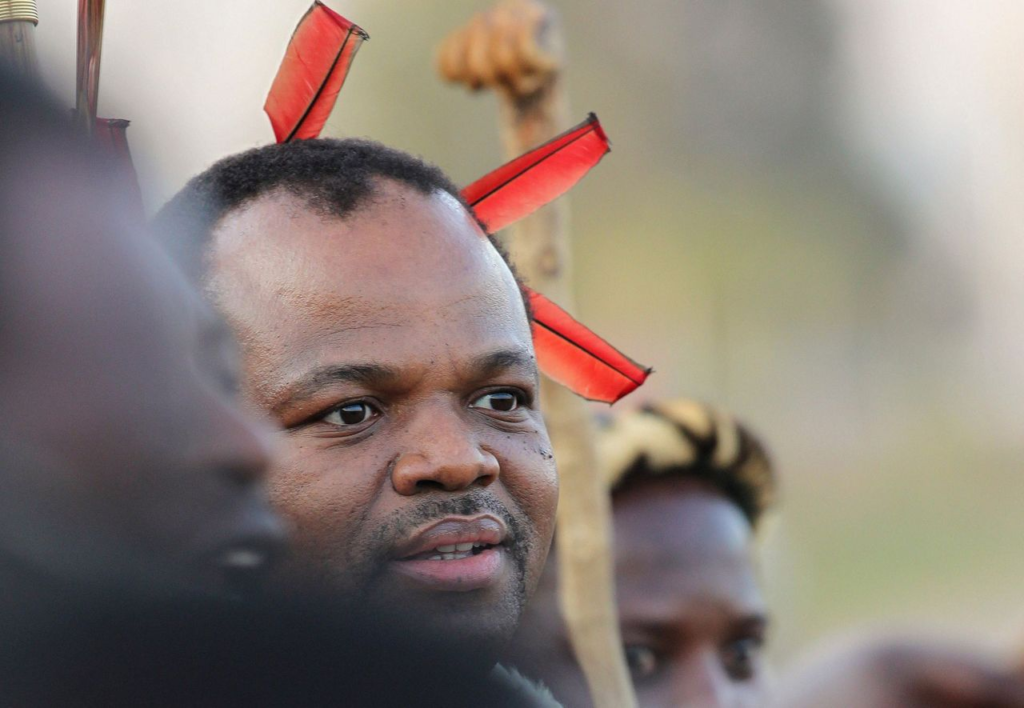KING MSWATI III’S ABSOLUTE RULE: HOW LONG CAN IT LAST?

For decades, King Mswati III has ruled Eswatini with unchecked authority, making it Africa’s last absolute monarchy. His grip on power has been maintained through repression, a concentration of wealth, and the systematic silencing of dissent. By November 2022, as pro-democracy movements gained momentum, questions about the longevity of his reign grew louder. How long can a regime that relies on fear and inequality sustain itself in the face of mounting internal and external pressures?
King Mswati III, who ascended to the throne in 1986, has built a legacy centered on personal enrichment and monarchical dominance. As the ultimate authority over all branches of government, he has the power to appoint the Prime Minister, control the judiciary, and make laws by decree. Political parties are banned under a 1973 decree, and the majority of the legislature consists of individuals loyal to the king. This concentration of power has created a system where the monarchy is not held accountable for its actions, allowing it to operate with impunity.
Central to King Mswati’s rule is the monarchy’s control over the country’s wealth. Despite widespread poverty, the royal family enjoys a lavish lifestyle, with palaces, luxury cars, and international trips funded by state resources. This extravagance has been a source of growing resentment among ordinary Swazis, who struggle to access basic necessities like healthcare, education, and clean water. The stark contrast between the monarchy’s wealth and the population’s hardships has fueled calls for reform and intensified anger toward the regime.
The 2021 pro-democracy protests marked a turning point in Eswatini’s political landscape. What began as demands for political reform and an end to police brutality evolved into a broader movement challenging the legitimacy of King Mswati’s absolute rule. The government’s violent response, which left over 80 people dead, revealed the lengths to which the monarchy would go to maintain its grip on power. However, it also exposed cracks in the regime’s foundation, as citizens increasingly rejected the monarchy’s authority.
By 2022, the pro-democracy movement had grown in strength and resilience, with activists, unions, and grassroots organizations continuing to push for change despite the risks. This resistance highlighted a key vulnerability of King Mswati’s rule: its reliance on fear. While the monarchy has managed to suppress dissent through violence and intimidation, it has not addressed the root causes of unrest. This failure to engage with the people’s demands has only deepened discontent and eroded the regime’s legitimacy.
Internationally, King Mswati’s rule has drawn criticism from human rights organizations and foreign governments. Reports of human rights abuses, including arbitrary arrests, torture, and extrajudicial killings, have tarnished the monarchy’s image. Regional bodies like the Southern African Development Community (SADC) have urged dialogue, but their efforts have been undermined by the king’s reluctance to engage in meaningful reform. While international pressure has yet to bring about significant change, it has amplified the voices of activists and increased scrutiny of the regime’s actions.
One of the monarchy’s greatest challenges is the growing discontent among Eswatini’s youth. With high levels of education but limited economic opportunities, young people have become a driving force in the pro-democracy movement. Their use of social media to organize and share information has made it increasingly difficult for the regime to control the narrative. This generational shift represents a significant threat to King Mswati’s rule, as the youth refuse to accept the status quo and demand a future built on justice and equality.
The question of how long King Mswati III’s absolute rule can last ultimately depends on his willingness to adapt. History has shown that regimes that refuse to reform often face collapse, as the pressure for change becomes insurmountable. For King Mswati, the choice is clear: he can continue to resist reform and risk further destabilization, or he can embrace the demands of his people and pave the way for a peaceful transition to democracy.
As an activist, I believe that the resilience of the pro-democracy movement is a testament to the strength and determination of the Swazi people. While the road to change is fraught with challenges, the growing unity and resolve of the population offer hope for a brighter future. The cracks in King Mswati’s rule are widening, and it is only a matter of time before the will of the people prevails.
King Mswati III’s reign may seem unshakable, but history reminds us that no regime built on oppression can endure forever. The people of Eswatini have shown that they are ready for change, and their voices cannot be silenced. The fight for democracy continues, and with each passing day, the possibility of a just and equitable Eswatini grows stronger. Together, we will achieve the future our nation deserves.



